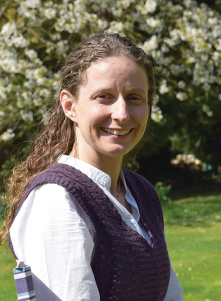 Talks on climate change and sustainability don’t often start with a discussion of generosity, but that is what we see on Earth. The natural resources available at the beginning of human history were not unlimited, but they were vast.
Talks on climate change and sustainability don’t often start with a discussion of generosity, but that is what we see on Earth. The natural resources available at the beginning of human history were not unlimited, but they were vast.
God’s awesome creativity resulted in a world in which living things essentially make themselves, using the materials available to them. For example, plants, algae, and some bacteria use air, water, sunlight and minerals to make their food. The rest of us eat these ‘primary producers’, or the organisms that ate them, so the whole of the living world essentially thrives on a few basic raw materials.
In the economy of ecosystems, nothing is wasted. Minerals and other nutrients are recycled from decaying organic matter. Water is recycled and purified by the processes of evaporation and rainfall. Everything is used for something, and through the dynamic processes of life, the overall trend on Earth has been towards increasing diversity and complexity.
In the story of the prodigal son, a generous father gives half of his property to his son, allowing him to learn by his mistakes. This parable is played out, in part, in our relationship with the environment. Genesis 1 describes how we are called to be responsible for the whole of creation, but we have used the world’s resources in ways which – while inventive – were not always wise. Many of our enterprises have been disastrously short sighted, wasteful and destructive. The end of the story is that God forgives our mistakes and loves us no less because of them, but there are still practical consequences to be dealt with.
The United Nations Conference on Climate Change this week is an attempt to address the damage that is still being done, and will hopefully result in effective and fair solutions. Measures need to be taken to protect vulnerable people and ecosystems, and to ration or recover resources that are now scarce. Extravagant standards of living must be brought down to a sustainable level. Poorer countries deserve the opportunity to develop in sustainable ways.
So is this the end of God’s generosity? I don’t think so. Sustainable living is not just about cutting down, but is about the improvement in everyone’s quality of life that will come from using natural resources well. We really can aim for a full, just and responsible enjoyment of the amazing gifts that our generous God has provided for us.
Reposted here with permission of The London Institute for Contemporary Culture.

Photo credit: Nigel Bovey
Ruth Bancewicz is a Senior Research Associate at The Faraday Institute for Science and Religion, where she works on the positive interaction between science and faith. After studying Genetics at Aberdeen University, she completed a PhD at Edinburgh University, based at the MRC Human Genetics Unit. She spent two years as a part-time postdoctoral researcher at the Wellcome Trust Centre for Cell Biology at Edinburgh University, while also working as the Development Officer for Christians in Science. Ruth then moved to The Faraday Institute to develop the Test of FAITH resources, the first of which were launched in 2009. Ruth is a trustee of Christians in Science and on the advisory council of BioLogos.




